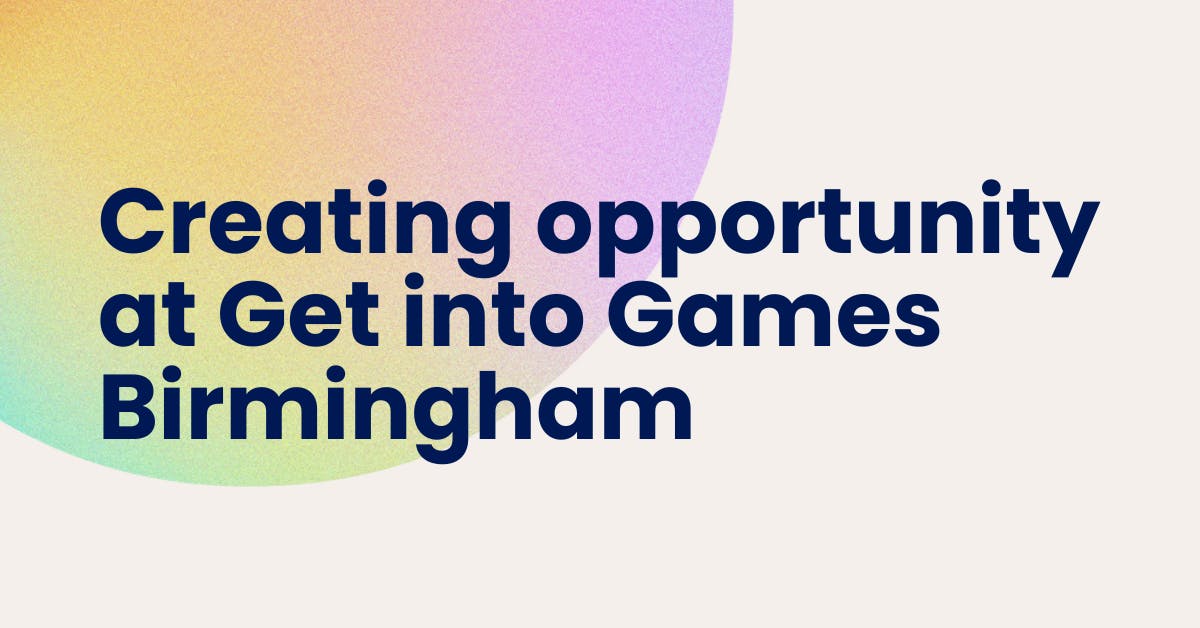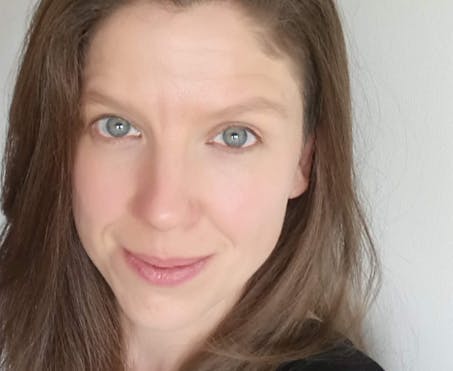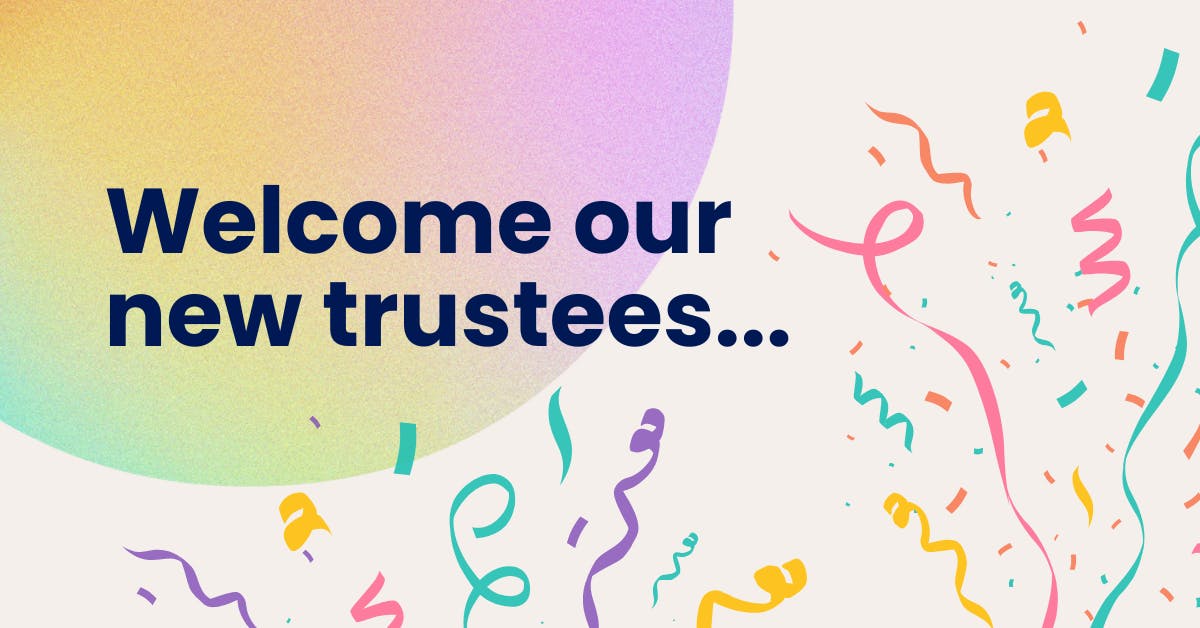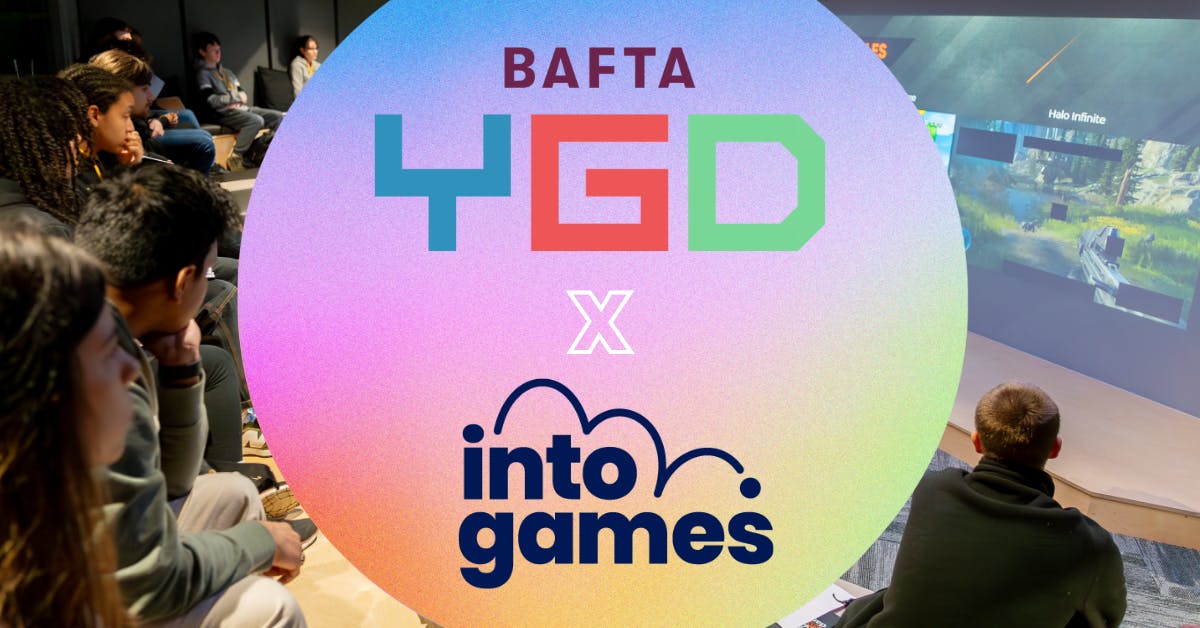
28 May 2020
What does a Quality Assurance Tester in games do?

Lesleyann White is living proof that the journey to your dream job is not always a straight forward one. Beginning in retail, teaching and even animal behaviourism, it took a job in player support to lead Lesleyann to her realised passion; Quality Assurance (QA). Lesleyann has gone on to win awards for QA and game development including a BAFTA Breakthrough Brit for her contribution to Sunless Skies. We asked Lesleyann some key questions about getting into the games sector.
Explain your role like I'm 5 years old
Broadly speaking my role is divided into two main areas: quality control and quality assurance. They are often used interchangeably, but they are different processes, each with a different focus. The quality control side of my role involves systematically testing every element of a piece of a game in order to find areas where it doesn’t work as intended, in other words to find bugs.
Finding bugs is just the start though. They need to be logged, prioritised and put in front of the right people for fixing. Once fixed they then need retesting to make sure it works and that the fix hasn’t broken anything else in the game. Testing also involves more qualitative analysis too; providing feedback and data to ensure a game is fun, intuitive and balanced. It sounds a lot like playing games, but it’s actually very different.
Quality assurance or the preferred term quality assistance however is about preventing bugs from occurring in the first place. It involves looking at the root cause of bugs and ensuring the underlying development processes are changed so that those sorts of issues won’t occur again. Its focus is on prevention and raising the bar of quality across the entire development team.
Take us through your average day at work
My role is so varied that it’s hard to pin down what an average day looks like. Working for a small indie studio means wearing a lot of hats and alongside my role in QA I hold a lot of other responsibilities: technical support for Sunless Sea and Sunless Skies, billing support for Fallen London, build engineer for Sunless Skies, and the production liaison for the console ports of our games.
I usually begin my day going through our bug reporting tool and ticketing system to resolve player queries, before looking over all our community spaces (forums, discord, reddit) to see if any players need technical help. If we’re implementing a new feature, I’d spend time studying the design documentation. I start analysing the risk of the feature to the wider game and raising any concerns. I also raise any ambiguities or errors with the designer and programmer before the coding begins. Then I start building my test plans and thinking about any testing tools I may need.
If a feature is ready for testing, I’d begin by validating it against its specifications and then looking for defects and ensuring it integrates with the rest of the game. Any bugs found are reported and sent to the programmer, artist or writer for fixing. Once those fixes come back I’d retest them and start regressing around those issues (making sure the fix hasn’t broken related systems).
If we’re getting ready to put an update out, I’d be preparing our release candidate, running smoke tests and regression suites, and running through checklists before making the builds ready for release. Since we’re porting our games to console a lot of my daily activities at the moment are centred around the production and testing side of the ports. It involves organising things like PEGI/ESRB certification, TRCs and ensuring everything is in place and ready for submission.
What was your educational and career journey into your current role?
I had an unusual route in the games industry. I was obsessed with games when I was young but was discouraged from any notion of a career in games and encouraged to get a “proper job”. The industry was in its infancy and there wasn’t a lot of information about it, parents and teachers didn’t really know enough in order to guide me. Coming from a poor family my parents were very practical people who found it hard to see beyond the need to get a good job in order to pay bills.
I excelled at science at school so I studied it at A level, with much encouragement from my biology teacher to train as a doctor or veterinarian. I was completely uninterested in medicine and also unable to go away to university after completing my A levels. Instead I went straight into a job in retail management and a few years later I discovered the Open University. The accessibility and affordability of their courses meant it was finally an option for me and I started a degree in Natural Sciences.
After my retail days I worked as a teaching assistant and later in the coach industry before training as an animal behaviourist. By that time I’d met my future husband whose dream had always been to work in the games industry. We moved to Cambridge when he landed a job at Jagex. I continued to work as an animal behaviourist for a couple of years before I burned out and declared I need a regular job.
My husband suggested applying to Jagex’s player support department since it was like retail and my experience would be relevant. He was right and I got the job. I was there for a few months before I realised something about my nature; I’m a career girl through and through. I can’t do less than strive to continually learn, do more and be better. When a role became available in QA all my colleagues pushed me to apply, saying I’d be a perfect fit. I didn’t think I’d stand a chance, but I went for it and got the role.
The rest as they say is History. I found QA to be a fascinating, technical discipline that is constantly evolving and challenging as a result. I thrived, rose up the ranks and was quickly given the responsibility of leading projects and teams. After three years I moved to Natural Motion to learn about mobile testing, before stepping out of the games industry to work in software testing at a research department at the University of Oxford.
The magic of games was too much though and in 2017 I returned to the industry to work for Failbetter Games, a small indie team who make top-quality narrative RPGs. Surrounded by supportive colleagues, my career has continued to blossom from there. I’ve gone on to win awards for QA and game development and in 2019 became a BAFTA Breakthrough Brit for my work on Sunless Skies.
What is the most rewarding thing about your role?
Obviously ensuring a quality product and experience for the consumers of our games is a super rewarding part of the job. Especially when they contact you to tell you about their experiences and how your work made them feel (and the best stories are when your games helped bring people together, fall in love, get married, etc)
But the thing I personally find the most satisfying is getting to the bottom of really elusive bugs. Sometimes a bug’s cause is very obvious and they are super easy to reproduce. In contrast here are bugs that are the result of very specific sequences of sometimes unrelated events and edge cases. These can at times be very difficult to track down. Tracking them down is like being a detective, you have to fit little pieces of evidence together to try to form a bigger picture. You form a hypothesis based on observations, test that hypothesis nd then analyse the data to see if your theory was right. It’s one of the most satisfying experiences to finally crack an elusive bug and understand the root cause.
What other roles do you work with the most?
One of the best things about QA is that you get to work with absolutely every other discipline within game development, from animation to audio, design to community management. QA gives the best overview of every role within game development and what it takes to produce a game, it helps you see the bigger picture and keep the whole process in perspective.
The fields QA works most closely with though are production and programming, with programming being the closest and testers working alongside coders on a daily basis.
What is the most challenging thing about your role?
The most challenging thing is the general disrespect and disregard for QA, both from outside the industry and at times from within it too. Things are improving within the industry. Many studios recognise the importance and value that QA brings to the entire team, especially when QA are embedded into agile teams. However, there are still far too many places where QA are not treated well and are often underpaid and have different worker’s rights.
From outside the industry there can be a lot of unpleasant behaviour directed towards developers and QA in particular. A lot of QA roles involve player support of some kind. Even if you don’t have to respond to players, you still have to filter through their reports/feedback which can be very disheartening and certainly has an impact on mental health.
What software or digital tools do you use the most?
At Failbetter the tools I use the most are Unity for testing and bug fixing, and Jira for reporting issues. I use various bespoke testing tools and macros like AutoHotkey along with our in-house CMS: Storynexus. For writing technical documents I use Confluence or Google Docs. I’ve used a variety of test management tools such as Hiptest and Test Rail at other studios, but at Failbetter I keep it simple and cost effective by using Google Sheets for our test plans.
What are the key skills needed for you to work on to do your role?
To work in QA you need to have a logical, organised and detail-orientated approach to work. Strong problem-solving skills and critical thinking are a must, as is endless patience and the ability to focus for long periods of time on sometimes mundane and repetitive tasks. You need outstanding communications skills, both verbal and written, and the ability to adapt for different audiences. You need to employ diplomacy and emotional awareness to be able to get your view across to other developers and to deliver useful, constructive feedback that critically assesses the user experience for a product.
Creativity is another key skill. It’s needed for being able to think destructively and approach work from novel angles, as is the ability to spot patterns and apply lessons from previous experiences to new projects. Being tech savvy is a huge bonus but you’re often taught about the tech side of the role on the job, so being a computer wizard is helpful but not essential.
What advice would you give to your younger self looking to get started in the industry?
Believe in yourself, don’t listen to the negativity and do what you actually want to do with your life, not what others think you should do.
Stay up to date
It's time to level up your inbox
Pick which newsletters you're interested in receiving, and customise further by specifying a discipline.
Join our mailing listTell me more






